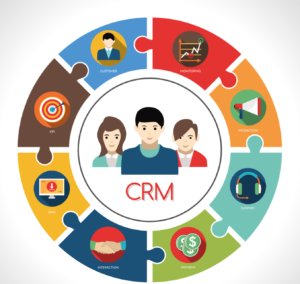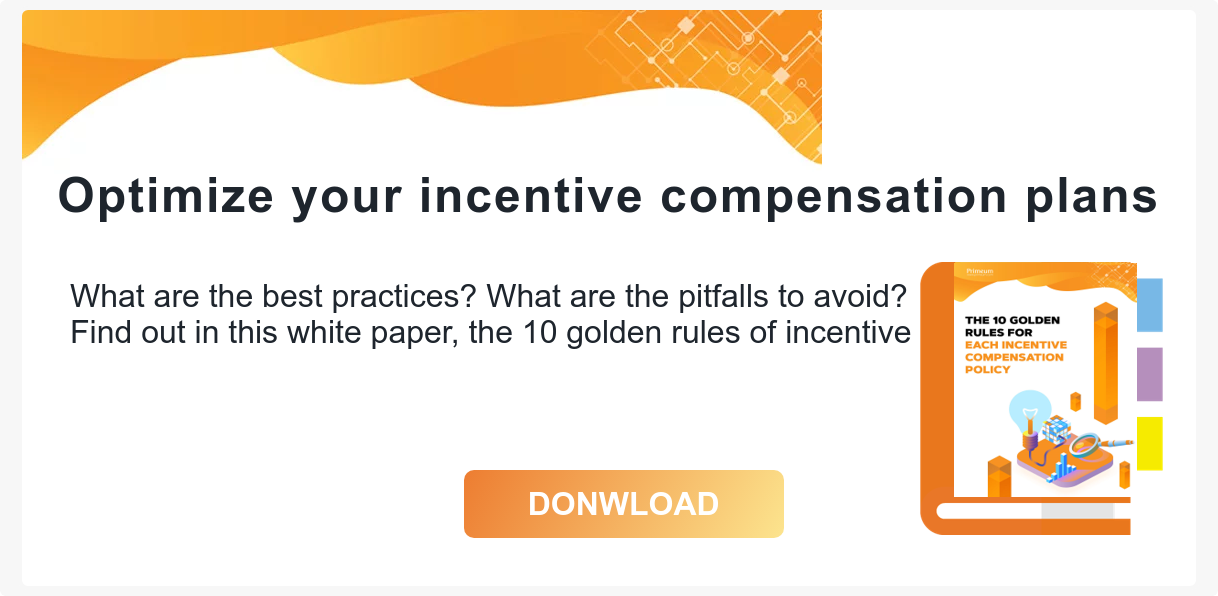According to a recent Salesforce study, conducted among 1209 European leaders of small businesses, SMEs and start-ups, 1 in 6 managers said they feel that a CRM tool never lives up to its promises!
According to this study, 1 in 3 managers say they never succeed in using the full potential of software! How to explain this gap between the CRM tool and its users?
Salesforce, Oracle, Microsoft Business Contact Manager, etc., CRM publishers achieved a turnover of more than 36.5 billion dollars in 2017 alone! The CRM is the preferred tool in the management of commercial relationships, nevertheless, with a failure rate of deployment still very important, its optimization is a gamble for many companies.
Sales people are the first to denounce inefficient use and refuse to use a CRM. How to encourage them to use it more? Elements of answer in this article.
1) WHY DO SOME SALES PEOPLE STILL RELUCTANT TO USE CRM?
According to a recent Gartner study, the failure rates of CRM projects are in the range of 30 to 60%!
Reasons for salesmen disinterest for CRM
Many managers are desperate to see their salesmen leave the CRM, yet at the heart of the information system, so difficult to deploy. How to explain this lack of interest on the part of the sales people for this software supposed to be their first tool of work? These software, sometimes poorly parameterized, are criticized by the commercial population who often refuses to use them, preferring archaic tools like the famous Excel table to list their customers!
The first reason mentioned by sales representatives is that of a difficult handling of the CRM which would not be calibrated for sale. Indeed, salespeople are looking for a tool that would ease business transactions, making them faster and more intuitive. However, the majority of proposed CRMs focus their use more on information gathering, the registration of appointments and contacts without proposing a real sales strategy. Thus, these CRM, not dedicated exclusively to sales are seen as tools compiling data, which can certainly facilitate customer relations by archiving a history but not serving as a real lever to a sale.
 To convince salespeople to use a CRM, it must be able to be an additional asset in the conclusion of a sale. Only on this condition will salespeople consider it useful to complete and complete it! In addition, they have trouble perceiving the real added value brought by a CRM that would be too administrative and not business-oriented enough. An effective CRM must be able to answer the needs of the salesmen concerning the support to the sale. The goal of a commercial CRM should be to optimize sales by developing the collaborative work between sales representatives, highlighting each lead business. Thus, the CRM must be the center of the commercial strategy to encourage salespeople to use it.
To convince salespeople to use a CRM, it must be able to be an additional asset in the conclusion of a sale. Only on this condition will salespeople consider it useful to complete and complete it! In addition, they have trouble perceiving the real added value brought by a CRM that would be too administrative and not business-oriented enough. An effective CRM must be able to answer the needs of the salesmen concerning the support to the sale. The goal of a commercial CRM should be to optimize sales by developing the collaborative work between sales representatives, highlighting each lead business. Thus, the CRM must be the center of the commercial strategy to encourage salespeople to use it.
Another reason mentioned is that CRM is too difficult to use and therefore time-consuming. And for good reason, some salespeople complain of spending several hours of their day having to inform the CRM, precious time that could have been dedicated to their main mission: the sale. They also mention a difficulty of reporting via these tools, considered too administrative. After a customer meeting, the sales representative must complete various fields, from the creation of a customer account, to the addition of a business need via the detailed content of the meeting. Thus, the reporting of activity carried out on some unsuitable CRM is seen as a chore by sales representatives, who no longer hesitate to ignore certain commercial foreclosures.
The lack of ergonomics highlighted by some salespeople, some also deplore a lack of training and support on the optimization of tools. Indeed, when deploying new solutions, salespeople receive a brief training but are delivered to themselves in the long term. But without a concrete demonstration of the benefits of using a new CRM, it is doomed to fail because it has not attracted the support of key stakeholders: the salesmen. CRM is sometimes perceived as a simple tool for "activity coping" instead of being a booster of commercial performance. Lack of ergonomics, doubtful commercial utility, lack of training, etc., are among the main reasons pushing salespeople to abandon the use of CRM. So, how do you prove to sales people that a CRM solution, well-defined and business-oriented, can meet their needs?
2) HOW TO CONVince YOUR sales representatives IN THE INTEREST OF A CRM?
According to a study by Cite Research, 69% of sales managers say they use a CRM to improve the efficiency of their teams!
Digital, gaming and communication: the keys to a successful CRM use
Some CRMs offer a full digital and collaborative approach. A real commercial platform, common to salespeople and managers, it makes the exchange between different users more fluent. These fully connected CRMs make it easier for managers to manage business activities, making it lighter and more intuitive.
Other CRMs put forward a playful operation like video games, this is the gamification of commercial CRM. The idea is to get your salespeople to use CRM while playing. Organization of challenges and games can facilitate the appropriation of salespeople of their new monitoring tool. CRM can be seen as a fun tool for business development, including the ability to earn gifts and other bonuses as a reward for good use.
To another extent, it is important to focus on communication around the deployment and use of CRM. The more you communicate upstream about the benefits presented by the tool, the more sales people will be encouraged to use it. After deployment, we must continue to communicate around the use of CRM by offering reminders on its operation or practical sheets to facilitate its use. In addition, it is important to organize training sessions for sales teams throughout the year so that each sales representative is familiar with the various CRM features. Offering real support on the use of CRM to your sales teams is essential to ensure a good rate of adherence to the tool.
Use incentive compensation
Finally, you can use variable pay to encourage your salespeople to use a CRM. This can be a real motivation lever and encourage salespeople to optimize the use of this tool. In addition, you can reward top CRM users by introducing qualitative input criteria that come into play in an incentive compensation system.
In addition, the introduction of a variable pay system that promotes good use of CRM can strongly encourage your salespeople to complete this valuable tool on a regular basis. Combining the deployment of a new CRM tool with the introduction of an incentive compensation policy encouraging its proper use is the best way to successfully implement your new software. Nevertheless, it is important to establish quantifiable and measurable records evaluation criteria. In this context, the implementation of qualitative criteria with score card, that is to say capable of measuring a quality of execution, can be quite relevant. The score card will allow you to analyze, over a period, usually for a quarter or semester, the quality level of the CRM filling.
After deploying your new solution and getting your sales teams to join the CRM, the budget initially allocated for communication and training of employees can easily be used for other purposes, including strategic issues for development of your activity.
Primeum, specialized in incentive compensation, regularly supports in setting up quality performance scores for its clients and can assist you in your projects. So, to make your salespeople addict to a CRM, offer them an ergonomic tool oriented business associated with a real financial incentive!





